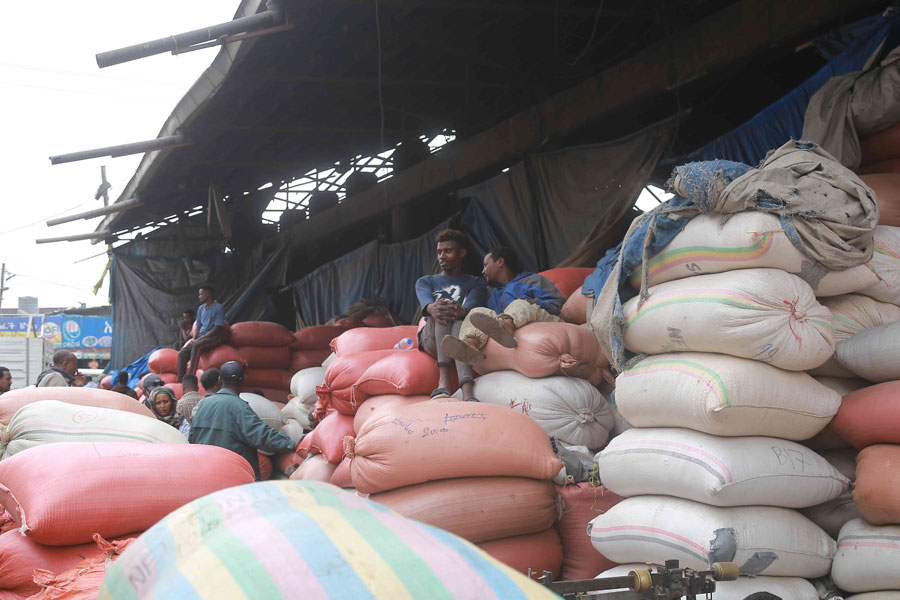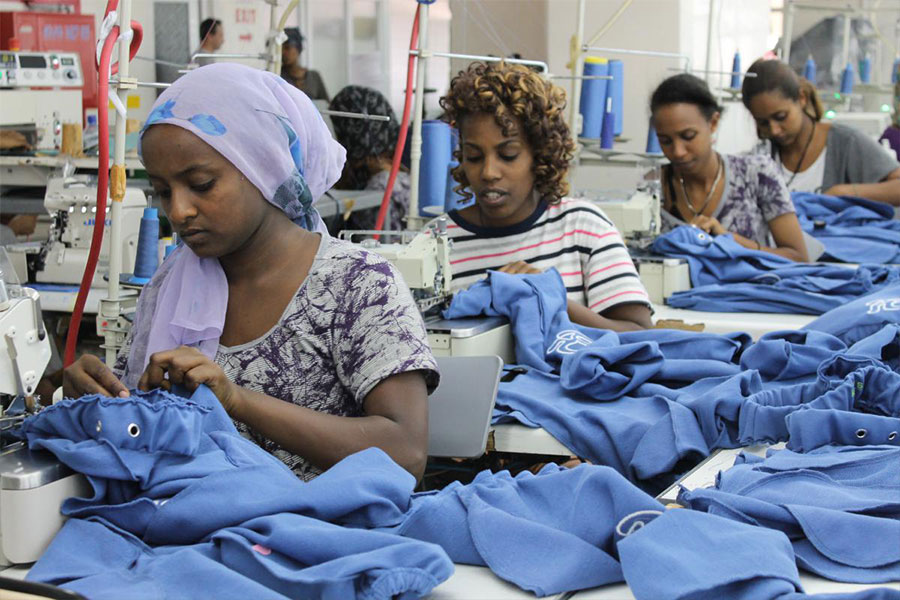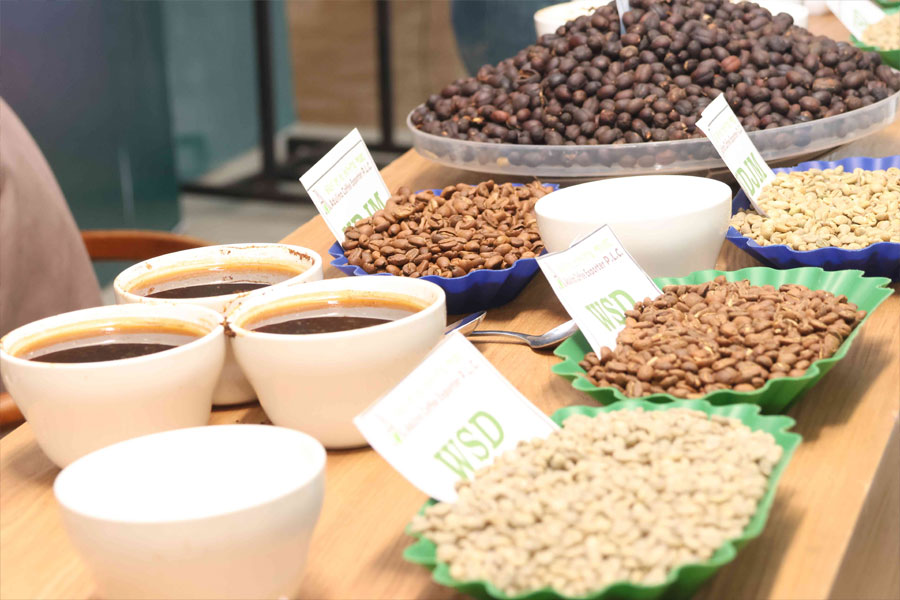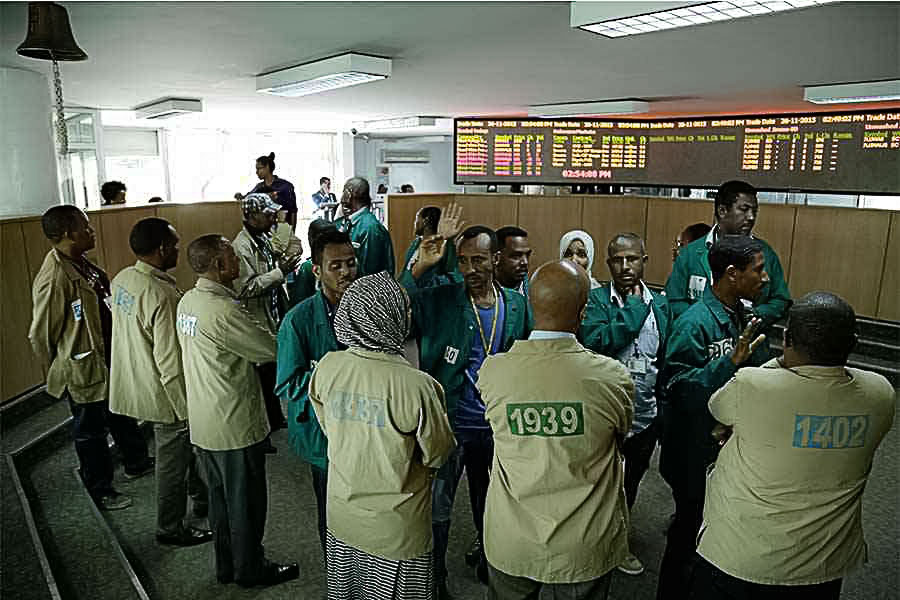
Ethiopia's central bank has set a threshold price for the exports of fresh-cut flowers to the dismay of the companies and their managers, who warn that higher floor prices could imperil competitiveness in the global market. These companies have already been up in arms about the central bank's revision of forex retention rules earlier this year.
The National Bank of Ethiopia (NBE) issued a new directive effective on April 1, 2022, which imposes a price regime for highland roses to bring no less than 4.2 dollars a kilogramme, around 0.6 dollars higher than the previous prices set two years ago. Lowland roses saw similar increases, while floor prices for a kilo of summer flowers have jumped by almost a dollar. Despite the varieties, average prices for roses in the first two months of this fiscal year registered at 3.74 dollars a kilo, data the Ethiopian Customs Commission showed. However, the last quarter of 2021 brought 2.4 dollars more.
Mekonnen Solomon, director of horticulture export support at the Ministry of Agriculture, contends that growing global demand for fresh-cut flowers has outstripped supply, pushing prices up.
"There's good reason to revise as the previous floor price set by the National Bank does not reflect the current prices in different market arrangements," he told Fortune.
The market arrangements he refers to are auctions and direct sales.
A group of experts from the central bank, the Customs Commission and the Revenues Ministry carried out a study to determine the new rates in October last year. Conducted after seven years, the study uncovered that average prices offered by flower growers had exceeded the floor prices set by the authorities. The 72 flower farms in operation (64 foreign-owned) participate in these arrangements, bringing forex accounting for 11.4pc of the country's export earnings, making them the second-largest flower producers and exporters in Africa after neighbouring Kenya. Export revenues registered at 264.4 million dollars over the first half of the year.
The growers were displeased with the findings when briefed a few weeks ago. But the industry was surprised when the directive landed with no heads up to the industry leaders.
Tewodros Zewdie heads the Ethiopian Horticulture Producer Exporters Association (EHPEA), an industry lobby group advocating the interests of growers. He was dispirited, for there were no consultations before the directive was issued. Industry leaders have been in touch with the authorities and requested "extensive discussions be held," according to Tewodros.
"We expect it to happen in the coming week," he told Fortune.
Growers want to appeal to the authorities that the revised prices will make it more difficult for them to find markets. It is particularly difficult for auction-based transactions, says a manager of a flower farm who requested anonymity.
The primary destination for auction-based sales is the Netherlands, which bought 294 million dollars worth of flowers last year. A little over 60pc of the flowers Ethiopia sells to the world go to the auctions in the Netherlands. Companies taking part in the auctions ship off flowers for grading. The process may push prices down below the threshold. However, as the flowers have already been shipped, growers would be forced to deposit the balance to the central bank based on the floor price.
The seasonality of the flower market is also an issue. Prices fall during off-seasons, such as periods after Christmas, Valentine's Day, and Mother's Day, the three moments of peak time.
According to the manager, it could be impossible to adjust pricing with the seasonal changes.
"It's better to lower the prices set now," the manager urged.
Afri Flower runs a farm in Holeta town in Oromia Regional State, 40Km west of Addis Abeba. Managed by Sentayehu Kebede, it employs 500 people. Sentayehu fears the new pricing regime will undermine exporters' competitiveness. He concedes that prices in the international market may increase, but not at the rate imposed by the central bank.
It is a perspective conveniently echoed by Tewodros from the lobby group.
“We all want the country to generate more foreign currency," he said. "The pros and cons of the decision should have been looked into.”
Officials tell a different story. They claim to have assessed their decision's 'fors and againsts'.
"Their concerns are right, but we don't believe this price revision would affect the competitiveness of the majority of growers in the long run," said Mekonnen.
Industry players challenged the accuracy and relevance of data used in the study, which led to price revision. They see them generated over the past three years, much of which has seen market disruptions due to the COVID-19 pandemic. The onset of COVID-19 caused restrictions imposed on movements and markets to shut down. However, the industry pulled through, partly because governments worldwide responded with generous fiscal policy measures.
Ethiopia lifted floor prices for fresh-cut flowers in the early days of the pandemic.
The industry was not spared from the forex crunch burdening many sectors active in the economy. Floriculture is an input-intensive business, with some farms reporting up to 90pc of their expenditures on imports. A directive issued by the central bank in January this year slashed the forex retention ratio for all exporters down to 20pc. The Association Tewodros leads has been on the frontline lobbying for flower growers to be exempted from the rules. Or the ratio increases to 30pc.
"We're still in discussions," Tewodros told Fortune.
PUBLISHED ON
Apr 09,2022 [ VOL
23 , NO
1145]

Sunday with Eden | Oct 15,2022

Agenda | Mar 04,2023

Fortune News | Aug 14,2021

Viewpoints | Jun 05,2021

Fortune News | Jul 23,2022

Radar | Aug 07,2021

Commentaries | Mar 09,2019

Agenda | Oct 13,2024

Editorial | Nov 02,2024

Fortune News | Oct 22,2022

Dec 22 , 2024 . By TIZITA SHEWAFERAW
Charged with transforming colossal state-owned enterprises into modern and competitiv...

Aug 18 , 2024 . By AKSAH ITALO
Although predictable Yonas Zerihun's job in the ride-hailing service is not immune to...

Jul 28 , 2024 . By TIZITA SHEWAFERAW
Unhabitual, perhaps too many, Samuel Gebreyohannes, 38, used to occasionally enjoy a couple of beers at breakfast. However, he recently swit...

Jul 13 , 2024 . By AKSAH ITALO
Investors who rely on tractors, trucks, and field vehicles for commuting, transporting commodities, and f...

Jun 28 , 2025
Meseret Damtie, the assertive auditor general, has never been shy about naming names...

Jun 21 , 2025
A well-worn adage says, “Budget is not destiny, but it is direction.” Examining t...

Jun 14 , 2025
Yet again, the Horn of Africa is bracing for trouble. A region already frayed by wars...

Jun 7 , 2025
Few promises shine brighter in Addis Abeba than the pledge of a roof for every family...